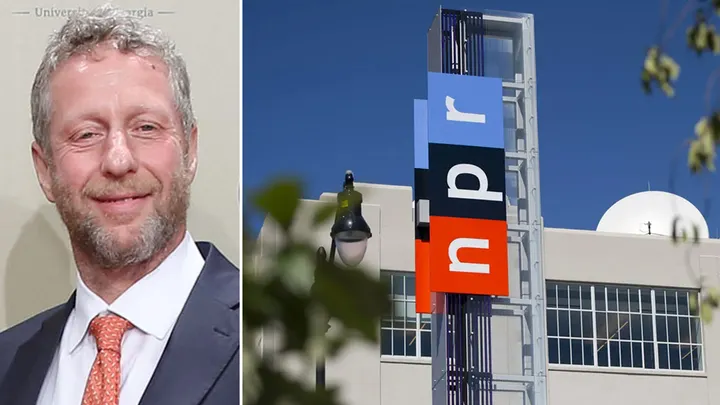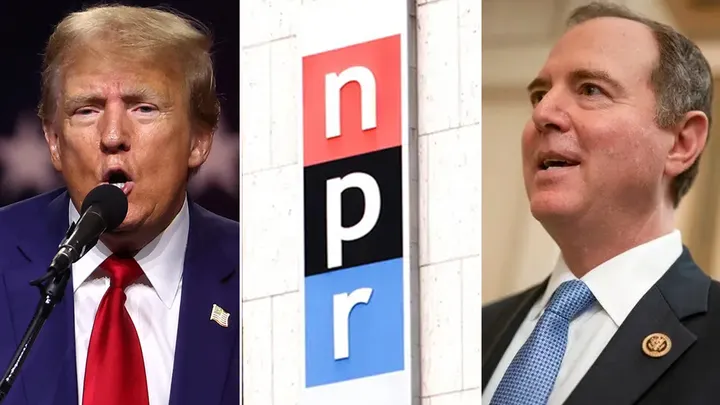Veteran NPR editor Uri Berliner detailed his employer’s “absence of viewpoint diversity” last week in a stunning rebuke of the news organization, and a former high-level NPR executive feels a “real problem” was identified in the scathing piece.
“I’m not surprised because he’s a very thoughtful and forthright guy,” a former high-level NPR executive who worked with Berliner told Fox News Digital on the condition of anonymity.
Berliner penned a bombshell piece in the Free Press that criticized NPR’s coverage of Russiagate, the COVID lab leak theory, Hunter Biden’s scandalous laptop, embrace of the theory of systemic racism and accused the organization of downplaying antisemitism following Oct. 7.
He also wrote that registration records in 2021 showed an astonishing disparity between Democrats and Republicans in the NPR newsroom and said staffers didn’t want to help former President Trump, among other things, to indicate an “open-minded spirit no longer exists” at NPR.

The ex-NPR executive noted that there seems to be “something going on in media,” as NBC and MSNBC hosts recently attacked their own employer for hiring former Republican National Committee head Ronna McDaniel, who was swiftly fired after the backlash.
“I think a lot of news organizations are struggling with these issues, with issues of fairness and the ability to tell more than one story,” they said, noting that journalists need to figure out how to accurately report on something they personally disagree with.
The longtime insider said the current generation of younger journalists feel they’re not being listened to and aren’t willing to put in the work needed to hone their craft.
“When I started in the business… journalism was seen not as a profession, but as a craft… day after day you did s—-y assignments, you worked awful shifts and gradually you got to understand the culture of the news organizations that was paying your salary,” they continued. “Now we’ve got a new generation of young journalists. Who are coming into the business and they’re saying, ‘Well, wait a minute, I got a journalism degree from such-and-such university. Why am I not being listened to? Why are my ideas not considered right and mature enough?’”

He feels news organizations are “trying very hard” to support this generation of impatient, young journalists, but conflicts are emerging as a result.
“He’s identified a real problem, but he’s unleashed an incredible reaction. He’s given the impression that he’s an older White guy, and he resents these younger, more diverse people muscling in,” they said. “That, I’m sure, is not his intention. I think his intention is, ‘How do you do journalism that serves a broader audience?’”
But young people are forcing newsrooms to be more “exclusive,” and Berliner has identified “the fact that he’s now working in an environment that seems to exclude him,” according to his longtime colleague. He praised Berliner as “terrific” to work with during his tenure.
“It seems to me that it would be very difficult for him now at NPR. I’ve seen stuff on the internet that he’s come under attack by people who are still at NPR,” he continued. “I think he did this out of a sense of principle.”
Berliner’s longtime colleague also said it’s noteworthy that the takedown of NPR was published in former New York Times opinion editor Bari Weiss’ Free Press. Weiss’ famously left the Times with a scathing resignation letter saying she was bullied by colleagues in an “illiberal environment.”
“It was definitely well-thought out by him,” they said. “The job of journalism has become more frightened than ever before, and it’s a kind of cultural McCarthyism, where people are being frightened out of saying what they think.”
Reached for comment about Berlinger’s claims, an NPR spokesperson directed Fox News Digital to a memo to staff by editor-in-chief Edith Chapin, where she said she and her team “strongly disagree” with the veteran editor’s assessment of the quality of NPR’s journalism and integrity.
“We’re proud to stand behind the exceptional work that our desks and shows do to cover a wide range of challenging stories. We believe that inclusion — among our staff, with our sourcing, and in our overall coverage — is critical to telling the nuanced stories of this country and our world,” she wrote as part of a lengthy memo.
Chapin also said she was proud of the organization’s work and lauded NPR as “one of the most trusted news organizations in the country.”
“Let’s not forget that the reason we remain one of the most trusted news organizations in the country is that we respect people’s ability to form their own judgments,” she added.






